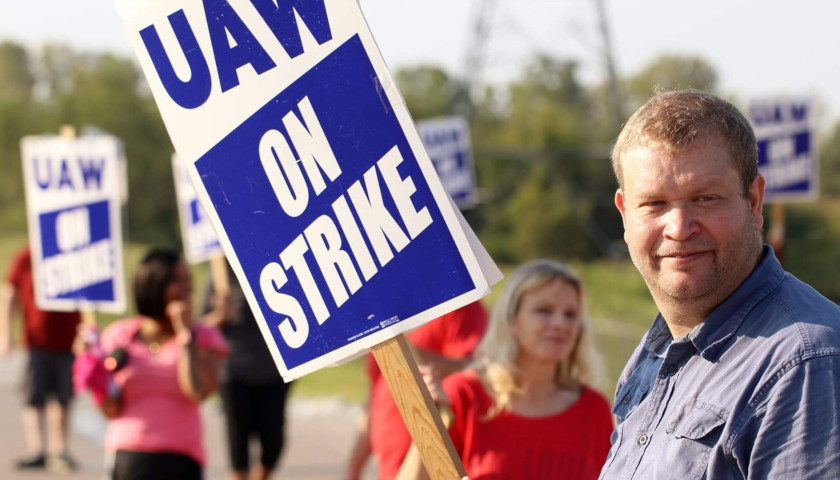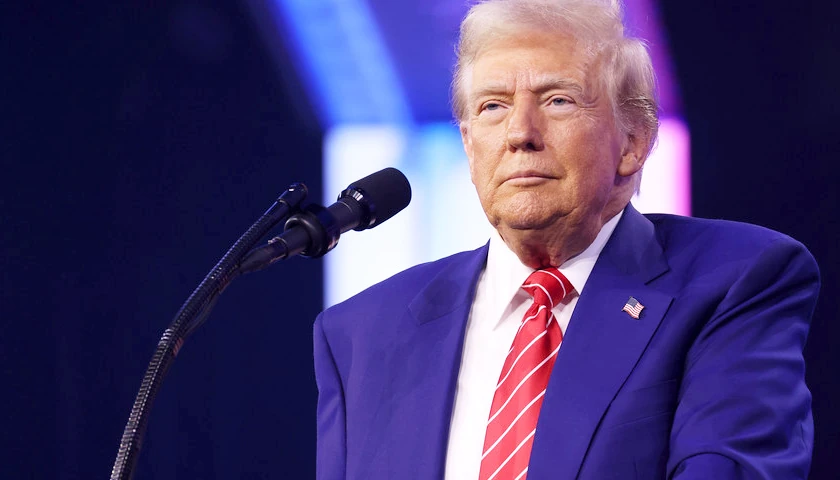by Ross Marchand
Americans woke up at the beginning of the week to hear an unusual bit of news – thousands of auto workers had gone on strike. Union strikes are hardly a common occurrence, and strikes have become particularly rare in the auto industry. In fact, the United Auto Workers hasn’t had a national strike against GM since 2007. But, if Senator and presidential hopeful Bernie Sanders (I-Vt.) had his druthers, large national strikes would be a frequent occurrence.
The socialist iconoclast has already come out with a “Work Place Democracy Plan,” which would strike down “right to work” laws across states and guarantee a right to strike for federal workers. Far from freeing the proletariat, Sanders’ proposal would mean less wage stability and disrupt services for millions of consumers. Policymakers must reject strike-driven strife and work toward creating a collaborative environment between businesses, workers, and consumers.
In recent years, strikes have become an antiquated spectacle, akin to visiting to visiting your grandmother and marveling at her rotary phone (and lack of internet). But just like that rotary phone, strikes are inefficient and create suffering and inconvenience for almost everybody involved. Already, striking auto workers have managed to shut down 33 manufacturing plants and 22 parts distribution warehouses across nine states. This costs the company about $400 million a day with the toll of lost opportunities facing thousands of Americans looking to drive away in new vehicles. Meanwhile, striking workers have little say in the matter and must accept a garnished paycheck regardless of how desperate they are. “Effective” unions also reduce research and development investment by companies, ensuring that consumers have access to fewer game-changing products.
And under Sanders’ disastrous proposal, these costly strikes would increase to the detriment of all. Most significantly, the self-described “democratic socialist” would lift the prohibition on federal workers going on strike, which has been in place since the Kennedy administration. Sure, federal workers have gone on strike before. These illegal demonstrations diminished services for millions of Americans depending on the government to deliver their mail or ensure air safety. The postal strike of 1970 forced the Nixon administration to call in the National Guard to deliver mail, although surprisingly they weren’t exactly efficient in sorting and mail route optimization.
Promised negotiations with mail carriers allowed the strike to finally end, and the resulting concessions were quite generous to postal workers. The agreed-upon double-digit pay increase and full granting of collective bargaining rights set up the current status-quo where labor benefits are driving more than $120 billion in unfunded postal liabilities. According to the U.S. Treasury’s 2018 postal task force report, “USPS employees maintain a unique collective bargaining position. They can bargain for wages and benefits as private sector unions do, without the same level of risk that their company will go out of business.” The Treasury also noted how difficult it is for the USPS to change their business model, due to the prevalence of “no layoff” clauses sector wide.
Fifty years on, the consequences of the postal strike are wildly felt. The USPS is slated to run out of cash by 2024, due in large part to burgeoning labor costs. Consumers have had to pay for this unsustainable operating model through higher stamp prices and taxpayers may have to bail the agency out in the near-future. And under a President Sanders, federal strikes would become the norm with the explicit backing of the executive branch. America would suffer from chronic service disruptions and increased taxpayer costs to the benefit of few and detriment of many. Policymakers should reject these misguided ideas and keep labor strikes a curious oddity rather than a frequent occurrence.
– – –
Ross Marchand is the director of policy for the Taxpayers Protection Alliance. Repub by The Center Square.
Photo “UAW Workers on Strike” by UAW 2250.





